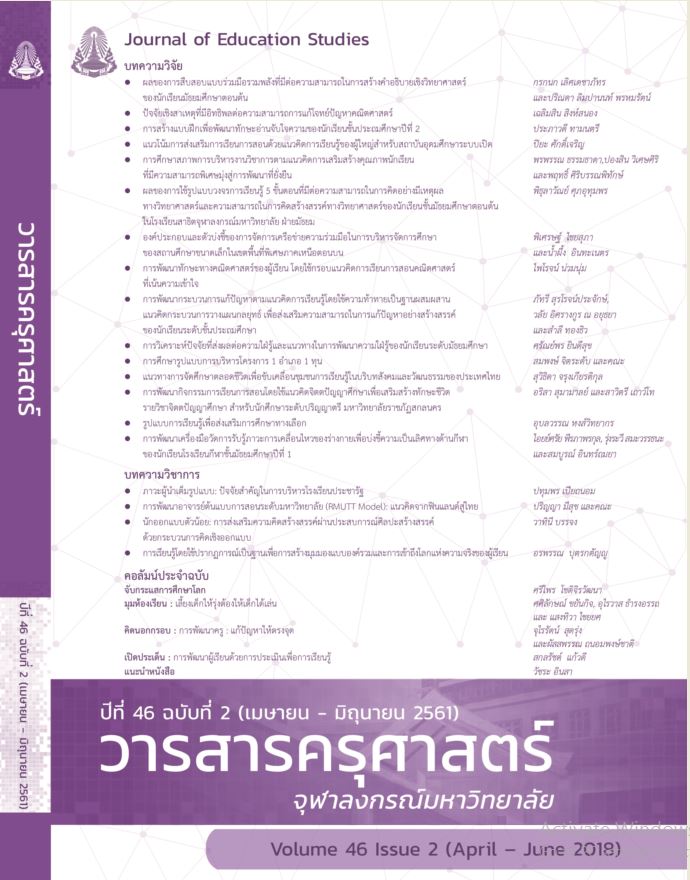ผลของการสืบสอบแบบร่วมมือรวมพลังที่มีต่อความสามารถในการสร้างคำอธิบายเชิงวิทยาศาสตร์ ของนักเรียนมัธยมศึกษาตอนต้น
Keywords:
COLLABORATIVE INQUIRY, SCIENTIFIC EXPLANATIONAbstract
Abstract
This quasi-experimental research aimed to: 1) examine the ability in scientific explanation making of an experimental group who learned science through collaborative inquiry, and 2) compare the ability in the scientific explanation making of students between an experimental group and a control group who learned science through the 5E learning cycle model. The sample comprised two classrooms (37 and 36 students) of a private school in Bangkok who studied in the first semester of the academic year 2016. The research instrument was the scientific explanation making ability test with reliability at 0.68. The collected data were analyzed by arithmetic mean, standard deviation, mean percentage score, and t-test.
The research findings were: 1) the mean percentage score of ability in scientific explanation making was 82.14 percent which was higher than the criterion score set at 50 percent. The total score of ability in scientific explanation making as well as its two component aspects in claim making and evidence identifying were at the very good level, meanwhile the component aspect in reasoning was at the good level. Also, 2) considering the total score and individual components of ability in scientific explanation making, the experimental group had a higher ability in scientific explanation making than the control group at a .05 level of significance.




